By: Prof. Sudarnoto Abdul Hakim, Chairman of the MUI for Foreign Relations and International Cooperation (HLNKI)
The role of the Indonesian Ulema Council (MUI) in the field of international relations is based on the mandate of the Preamble of the 1945 Constitution, the principles of Wasathiyyatul Islam and for the mission of Rahmatan lil ‘Alamin.
Because of this, MUI encourages the government, among other things, to strengthen Indonesia’s free and active politics and appear as a peace maker, especially in resolving or finding solutions to conflicts, for example Israel-Palestine and Russia-Ukraine.
Apart from that, the MUI itself also proactively plays the role of second track diplomacy which is directed at the khidmatul ummah and himayatul ummah, especially related to various political problems faced by Muslims and Muslim countries.
Also Read: The Forty-Four-Days of Glory: Azerbaijan’s Struggle for Justice and Peace
In general, the global situation in 2022 has not shown significant improvement compared to previous years. The same situation also colors Muslim nations and countries.
In fact, 2022 seems to be getting worse as a result of the Covid-19 pandemic, the Palestinian-Israeli issue is still unresolved, the uncertain developments and political situation in Afghanistan, and Islamophobia that is occurring in a number of countries such as India, Sweden, France.
Global Injustice
As in previous years, in 2022 the world will also be marked by practices of global injustice which, politically and economically, are also experienced by Muslims in many countries.
Also Read: Palestine Solidarity Month: A Collective Movement for Al-Aqsa and Palestine’s Freedom
The domination of neo-capitalism and neo-liberalism has perpetuated economic inequality, injustice and even poverty in many countries, especially with the effects of the Covid-19 pandemic.
It turns out that world economic institutions such as the IMF have failed to realize global prosperity and justice. In the name of international aid, the IMF carried out aid programs which in fact created new difficulties and tribulations for debtor countries. This has great potential to result in social vulnerability and conflict.
MUI also stressed the need to carry out a democratization process within the United Nations that is still very relevant until 2022.
This democratization in the United Nations is manifested concretely in two ways: first, establishing a consistent mechanism for discussion of decision-making, especially at the UN Security Council sessions in the context of conflict resolution and peacemaking; secondly, reviewing, eliminating or limiting the use of the Veto Right.
Also Read: Hassan al-Turabi: A Controversial Thinker from Sudan
The veto should not be used for issues that could actually provide wide space for annexation, apartheid and genocide by anyone. This is urgently needed, among others, in order to facilitate efforts to create and strengthen global peace and justice.
MUI still views that resistance to Israeli Zionism and defense of the Palestinian people and nation is still relevant in 2022, especially since the United Nations itself has set November 29 as the day of solidarity for the Palestinian people. Until now various acts of violence and terror are still being carried out by Israeli Zionism against the Palestinian people. This American-supported Israeli action certainly undermines several UN Security Council resolutions, humanity and world peace.
Resistance to Israeli Zionism in 2022 must continue, among others, through (1) a convincing diplomatic struggle so that Israel is expelled from its membership in the United Nations, (2) encouragement to various domestic and foreign civil society forces, human rights activists and other segments of society to criticize and stopping Israel’s brutal actions (3) encouraging the OIC to consolidate the unity of Muslim countries.
MUI, in 2022 will still consistently support the struggle of the Palestinian people by establishing partnerships with various parties for humanitarian aid programs and other social, educational and economic programs for the Palestinian people.
Also Read: Who Exactly is the RSF Group Shaking Sudan?
Therefore, the construction of a public hospital in Hebron by the MUI, for example, is a very important and concrete step which must be encouraged and completed properly according to the planned schedule.
Acts of violence, crime and atrocities even committed by the government (state violence) against Muslims are still occurring in several countries even in 2022. In India, for example, Muslim minorities have been discriminated against socially, economically, even legally and politically, especially since India’s citizenship law places Muslims as second-class citizens.
Acts of hostility and hatred towards Muslims and Islam (Islamophobia) are actually carried out to this day. The treatment of the government and extreme groups of Indian Hindus (Hindu ultra-nationalists), for example, has actually not only undermined the principles of democracy and destroyed humanity, but at the same time undermined the image of the Indian government.
This Islamophobic movement tends to be increasingly vulgar in many countries and the process of omission seems to be increasingly felt. Because of that, the momentum of the United Nations determination to fight against Islamophobia is becoming increasingly important and because of that, everyone from all nations and religions must see that Islamophobia is a common enemy, an enemy of humanity and civilization.
Also Read: The Two-State Solution (Palestine–Israel) in Historical Perspective
On this basis, the MUI condemns the oppression of Muslims and Islamophobia that seems to be growing in 2022. However, the MUI also conveys a number of recommendations so that world institutions such as the OIC, the United Nations, human rights defenders organizations and other civil society forces also intensively take strategic steps to stop Islamophobic movements and defend Muslim rights and sovereignty, especially in non-Muslim countries.
However, at the same time, reconsolidation efforts for Tansiqul Harokah (consolidation of the movement) and Taswiyatul Manhaj (sameness of thought and action) and Tauhidul Ummah (unification of the ummah) are very important. If this is not done, then Muslims will experience failure.
The existence and position of Muslim minorities in non-Muslim countries has not received much attention. Some of them actually experienced various acts of violence and even beyond the limits of humanity.
The principles and values of democracy, justice and humanity are systematically violated by the government and secular-radical political and ideological groups and even certain religious groups. Their religious rights and even their safety and life are threatened.
Also Read: Enchanted by K-Dramas, Dragged into Slander: Time for Muslims to Rise!
Apart from India, this is also experienced for example by Muslims in Kashmir, Myanmar and Uyghur. In fact, several cases of discrimination, bullying and insults against Muslims in several regions in Australia, Europe, America and Canada also occurred.
Global Leadership
In 2022, MUI still sees the need for a strong and effective global Muslim leadership. Therefore unity and effective leadership must be built; Conflicts between Muslim factions and several OIC member countries must be stopped because conflicts will only weaken and corner the position of the Ummah and Muslim countries.
For this reason, MUI calls on the OIC and other world Islamic organizations to carry out a serious reconsolidation so that the leadership of the Islamic world is established effectively.
Also Read: Creating Opportunity and Avoiding Misery; Lesson Learn on Waste Recycling Issue
So that the unity of the Islamic world is getting stronger, the progress of the Islamic world is realized and world peace is created.
Regarding the opportunities for Indonesian Muslims, demographically, Indonesia is the largest Muslim nation and country in the world. Not a few nations and countries have given hope and confidence in Indonesia’s strategic role in creating a peaceful and prosperous world.
Religiously, Indonesian Muslims adhere to Wasathiyyatul Islam which is believed to be capable of responding to various humanitarian crises resulting from political conflicts, environmental crises, poverty, extremism and so on.
It has also been agreed that Indonesia will become the central country for global wasathiyatul Islam and because of that Indonesia must be able to set an example and lead globally in moving Wasatiyatul Islam for a prosperous, peaceful and civilized world.
Also Read: Between the Treaty of Hudaybiyyah and Ceasefire in Gaza
Indonesia’s diplomatic position which adheres to the free and active ideology is still very important and necessary.
With this position, Indonesia can be friendly and collaborate with any country on an equal basis. Because of this, efforts to create world peace carried out by Indonesia are of great concern and very important.
The hope, of course, is that the strength and organization of Indonesian Muslim civil society will become very important in order to participate in strengthening and defending sovereignty and humanity, peace, prosperity and world civilization. Therefore, the diplomatic roles of this Muslim civil society organization need to be optimized. (T/RE1)
Mi’raj News Agency (MINA)
Also Read: Peace Cannot Be Achieved Without a Palestinian State






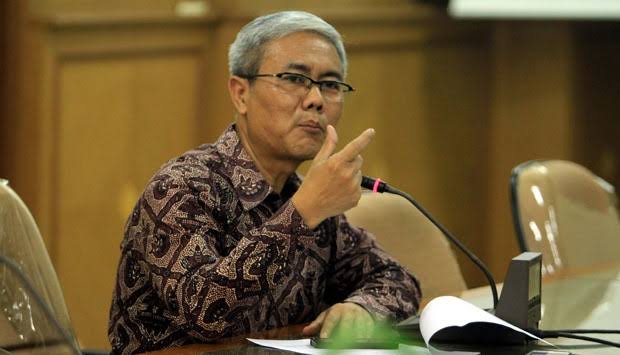

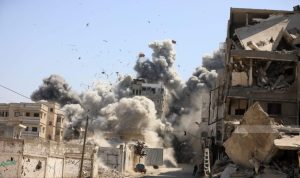

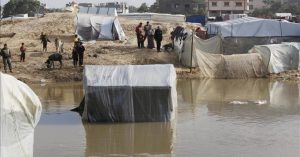
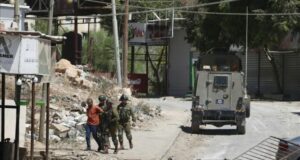
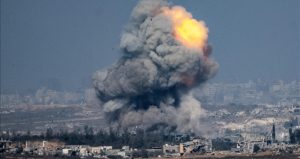



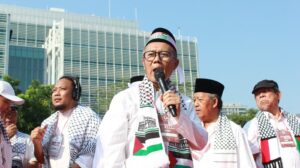

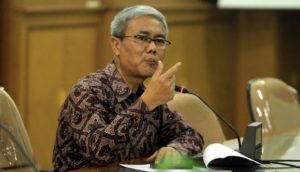
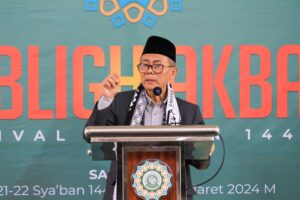











 Mina Indonesia
Mina Indonesia Mina Arabic
Mina Arabic